
Since 2013, Ceasar Bautista has been writing his own personal encyclopedia.
Let me repeat that: for the last 6 years, he has been writing an encyclopedia, for himself, of everything he knows.
You can see some of it live here: memex.cc. But most of it lives in a bunch of files on his computer.
To create Encyclopedia, Ceasar, a software engineer at venture capital firm Signal Fire, built an open source Flask app that lets him write and compile full-fledged articles on every topic with Wikipedia-level detail and exactness.
He has articles on everything from squatting, to skeletal muscles, to art, to technical interviews. It’s extremely fucking cool.
But it also begs the question, why do something like this? What motivates him? And if you have a system that ensures you never forget what you learn, how does it affect your life?
Let’s dive in!
Dan Shipper: Tell me a little bit about why you started writing Encyclopedia?
Ceasar Bautista: So, I started it in December 2013.
And I was motivated to take notes in the first place because I observed that I read all these books in high school and by the time college came around I didn't really remember anything about them except how I felt about them. I couldn't rehash the arguments in the book, or explain the logic of it. And that felt like a real shame, that every four years you just forget everything you've read.
And that felt like a real shame, that every four years you just forget everything you've read.
So I realized that if I was serious about learning, I needed to solve the problem in some way.
Dan Shipper: Have you noticed any other benefits of doing this other than remembering what you read?
Ceasar Bautista: Yeah there are a lot of them. One benefit is that it means I have to really understand what I'm reading. Because writing everything out forces me to have to think about what I'm learning.
One benefit is that it means I have to really understand what I'm reading. Because writing everything out forces me to have to think about what I'm learning.
Encyclopedia entries are structured as articles. So when I go to write the first sentence of the article, I usually notice that it goes really badly.
For instance, if I was reading a book on art or something, the first sentence of the article for art would be "Art is…." and then I would try to define art. And oftentimes, I really don't know what to write after that. It's surprisingly difficult for so many things.
It also makes you see that a lot of authors don't even bother to define core terms in their books. You might be reading a book on evolution and they might never define what evolution is. Even though it's really central to the book.
Another benefit is it just helps me to pay attention to and evaluate logical arguments. I think most times when you read a book you intuitively understand their argument, but forcing yourself to actually write the argument is a challenge, and a good one.
I think most times when you read a book you intuitively understand their argument, but forcing yourself to actually write the argument is a challenge, and a good one.
Books are usually trying to convince you of something. If someone says, "Black holes exist in the universe," writing the Encyclopedia entry helps me to think, “Why should I believe them? What's the argument? What evidence do you have that black holes actually exist?”
And writing that out, is often really difficult, surprisingly.
And then the final benefit of doing this is that when I write these entries I often can see what I don't know about a topic. And so then it gives me a place go focus my research if I want to spend more time on it. It gives me a map of what I don’t know.
For instance, when I'm interviewing for a company, I usually try and read everything I can on that company, like articles in the press. But there's usually a lot of things that they leave out.
And so if you know the questions that you could be asking about a company and you know which ones you've answered and the ones you haven't answered, then when you show up you know which ones you need to ask.
I think probably what the smartest people can do that the rest of us can't, is know what questions they need to ask. And that's really hard. Most times I think I have actually understood something when I really haven't. And I would say, you get better at it. Like trying to understand more and more things. And then you realize there's a question you haven't been asking about those sorts of things.
I think probably what the smartest people can do that the rest of us can't, is know what questions they need to ask.
Dan Shipper: Right. This is really amazing. So what's your process usually? Are you reading on your computer and then taking notes on your computer at the same time?
Ceasar Bautista: Yeah. I prefer PDFs. I do also have a physical book stand that I bought.
I kind of thought it would be cool if I could have a book stand that would hold like four books open at once. Because I mean there have been some cases where I actually, legitimately, am reading three books on one topic at once.
Dan Shipper: How often do you reference Encyclopedia?
Ceasar Bautista: Pretty often. If it's something that I've been thinking about a lot, it's actually more useful to me than Google. So, for instance, I do coding as my day job and if I forget something about how Python works or something, then my first thought is usually to open up the Python entry in Encyclopedia, and then search it for what I need.
I don’t ever casually read it, but I reference it often for different situations. For example, I have an article on skeletal muscles and how they work, and I’m going to be reading that soon because I’m going to be modifying my workout routine.
I think the most practical one is my entry on technical interviews. If I ever do an interview with a company, I just copy the questions that were given to me and the answers that I came up with that were optimal, or as optimal as I can make them. So this is really useful when I'm trying to get ready for interviews.
Dan Shipper: How do you find the right entry when you want to look something up or when you want to add information to them?
Ceasar Bautista: I use search. It would probably not be very convenient for non-programmers. But for me, one of the things I really like is that it's all just text files and it's really easy to edit it. And that also means if you know how to search on the command line you can just use grep, and it works pretty decently. So I can use grep to find what I want.
Dan Shipper: And how do you think about how to organize the articles?
Ceasar Bautista: I guess the top level is really important to me, how that's structured. And I try and use the same things every time. So my theory on how to do that is that, well, I mean there's a little story here that I like to tell people.
So, when I read this book called How to Read A Book, and it explains you're not done with the book when you finish it, you're done with the book when you know everything, like when you've understood it. And how do you know when you've understood it? And the answer is, when you've answered every question that you could conceivably ask about it basically.
And I think that's true about everything. How do you know when you've understood a programming language, or how do you know when you've understood money or lifting, right? If you can answer pretty much any question that anyone could ask you about it, I would say you probably understand it.
If you can answer pretty much any question that anyone could ask you about it, I would say you probably understand it.
And then the question becomes, “What questions can you ask about things?” And I think that's a question, it's a metaphysical question. Different things you can ask different things about. Like for food you can ask, “What's the nutrition content?” But you can't ask that about chairs.
My guess is that if you zoom out to the most abstract level, it seems to me there's probably only 20 things in the world. And everything else is a subclass of those 20 things. I don't know what those things are, but if that's true, then those 20 things, you can probably ask a set of questions about them. And then you could ask that set of questions about everything that's a subclass of them.
And I think that's basically true of almost everything. I don't think there's that many things.
I guess the questions I usually ask about things are like, one is function. “What is it for?” “What do humans use it for?” “Or why did humans invent it?” There are multiple questions there but I just group them all under that idea of use.
And then substance. “Which is what does it consist of?” “What are its parts and how are they arranged?”
And then properties. “What are the things that could be different about it without changing the essence of the thing?”
And then history, like, “What's the history of humans interacting with the thing?” “How is it created?” and so on.
Dan Shipper: That's so cool. So I think it's really interesting how you chose to structure this, where you have a bunch of articles on different topics linked with hyperlinks.
Can you explain why you decided to do that versus maybe small little notes or little summaries or whatever. It's written in a very formal way.
Ceasar Bautista: I guess I only want Encyclopedia to really contain truth. Sometimes I do write things where I'm unsure about it or I guess I do have personal thoughts.
I only want Encyclopedia to really contain truth.
But, I mean, the goal of this is really knowledge. So, I'm not really sure I guess what the value would be, putting in more personal comments and stuff. I guess my goal is just to preserve my memory, but my feelings on things I don't really care about that much.
Dan Shipper: That’s really interesting. I think that being able to see how I thought about something or how I felt about something in a particular period of time, and then how my feelings have evolved is very important to me. And so having a record of that is really interesting.
Ceasar Bautista: I guess I do have that, but that's in a journal. So just completely separate from this project.
Dan Shipper: How do you do journal? And what do you use it for?
Ceasar Bautista: I actually don't use it very well. It's actually one of the things that I think I should invest a lot more in.
I mostly just log what happened to me on a particular day, and then how I felt about those sorts of things. But I don't review it on any regular cadence. I feel like I actually get very few insights on myself and I feel like I notice myself just making the same mistakes every year.
Dan Shipper: Join the club.
Ceasar Bautista: Yeah. So, that's something that I think could actually be way more valuable than Encyclopedia for most people. If you could do it well. But every time I read about journals it's always bullshit.
Like, it's not based on first principles. It's just like, someone's like, "Talk about three things you're grateful for."
But I think there's something deeper there where if you could identify patterns in your behavior, that would let you improve so much more quickly on personal sorts of things like relationships or if you cope badly with stress or something.
I don't do a good job of that in my current journaling setup. It's literally just a time log of what I did every day. And it's useful because then I can remember that this conversation happened on this day and what we talked about.
And the next time I see you I can be like, "Well, the last time we talked, this is what we talked about.”
Dan Shipper: Is it digital or is it physical?
Ceasar Bautista: It's digital.
Dan Shipper: And is it just text files?
Ceasar Bautista: Yeah. They're just in my Dropbox as well.
Dan Shipper: I'd be very curious to know... Have you been doing it since college? [Editors Note: Ceasar and I went to college together.] Do you have any conversations that you can pull up that we had?
Ceasar Bautista: Let's see. Hold on. Okay, here's some things. This is... I was 21, and this is by the week.
Dan Shipper: Can I look at it?
Ceasar Bautista: Yeah. Although, let me see. I don't want to reveal too much, but yeah, like your name appears at least eight times here. I must have first met you when I first turned 21. Yeah. Wow, that's really funny.
Dan Shipper: I love it, I love it. That's really great. It's so funny that you have that stuff.
How is the tool built? I guess this journal seems like it's just text files, but how is the Encyclopedia built?
Ceasar Bautista: It uses this thing called reStructuredText. Which is like Markdown but it's more powerful.
Dan Shipper: Okay.
Ceasar Bautista: Basically all I made was a little Flask app. It's really simple, and I literally basically never work on it. It reads the reStructuredText files from Dropbox, and then it compiles them into HTML.
The thing I like about this is that it makes linking really easy. When I evaluate other wikis online, they all suck because it’s hard to link between files. With reStructuredText it makes it really easy.
Dan Shipper: That makes sense. To close, do you have any book recommendations for us?
Ceasar Bautista: If I were recommending to people honestly, and I don't always do this myself, I would just recommend reading the classics.
I think that's probably the best use of our time. Given, you can't really read that many books in your lifetime. If you just do the math, right, you might get through two a month, and you only have, that's like 25. And you only have 50 years left.
It's not that high of a number actually. So it seems like you should really focus on just reading the best books and the classics seem to be the best ones because they're time tested.
For the curious, here are some interesting Encyclopedia entries to read:
Thanks for reading! Are you a superorganizer? Do you know anyone else who is? If so, just push reply and let me know! I’d love to talk to them.
The Only Subscription
You Need to
Stay at the
Edge of AI
The essential toolkit for those shaping the future
"This might be the best value you
can get from an AI subscription."
- Jay S.
Join 100,000+ leaders, builders, and innovators

Email address
Already have an account? Sign in
What is included in a subscription?
Daily insights from AI pioneers + early access to powerful AI tools
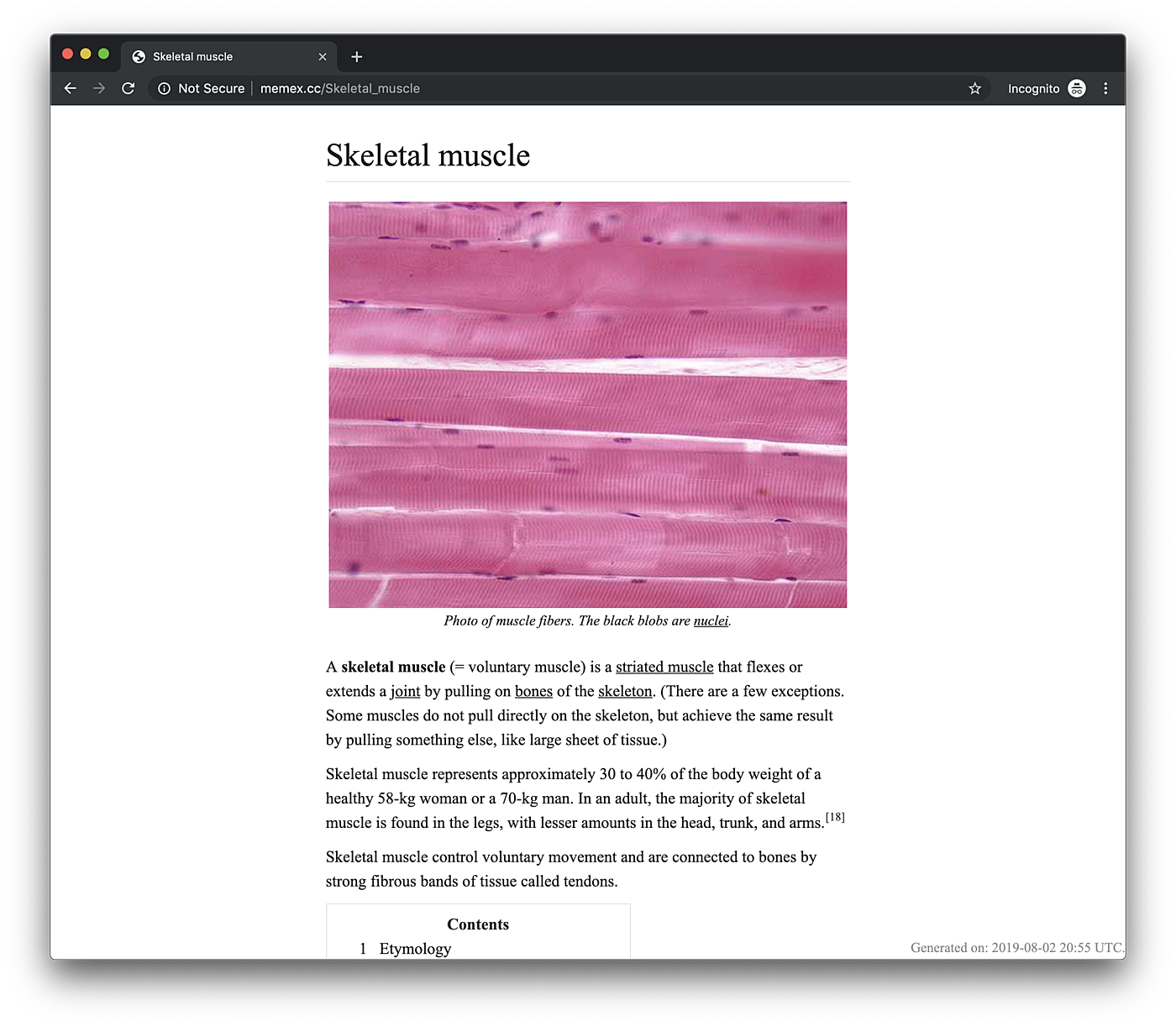
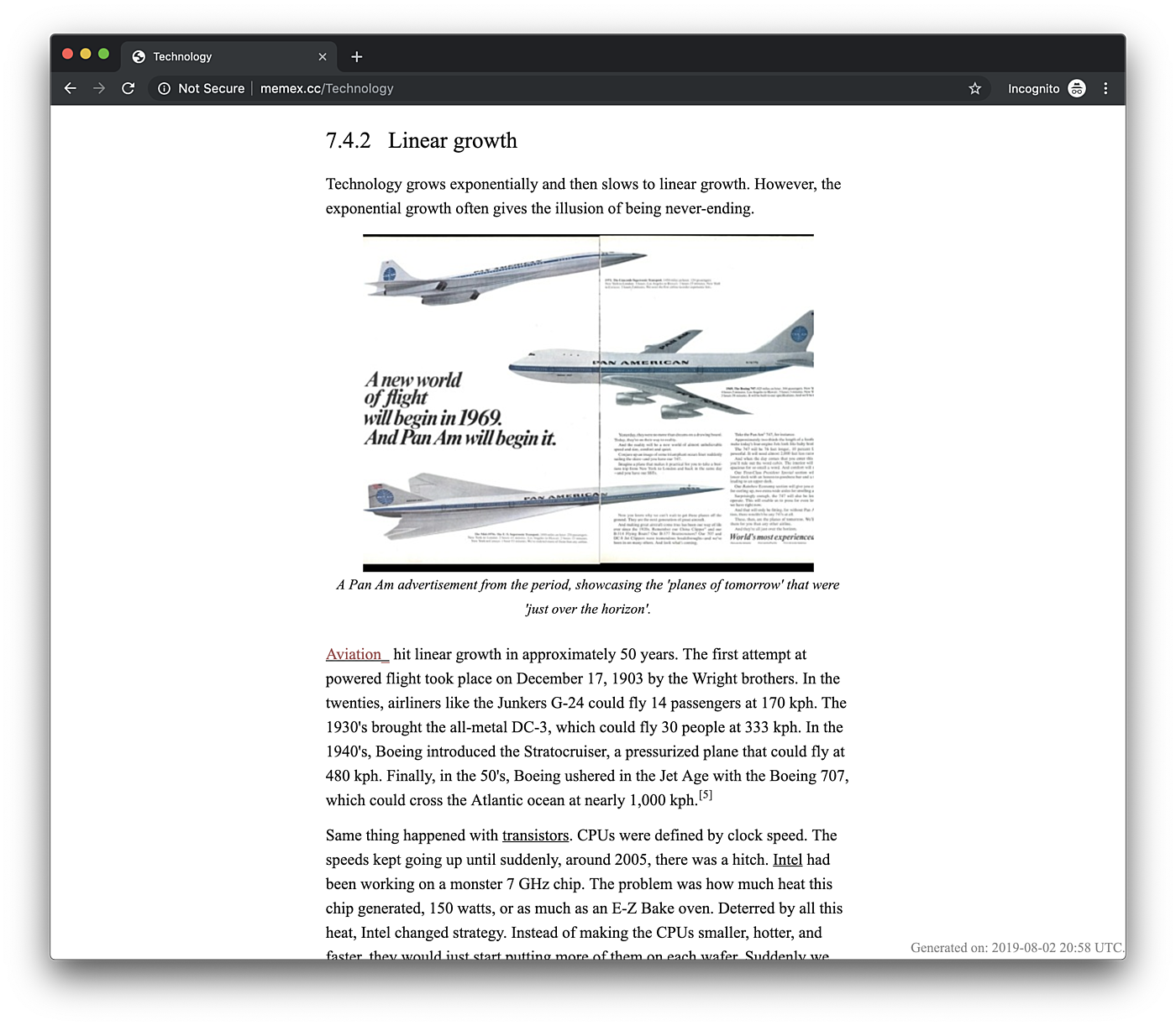
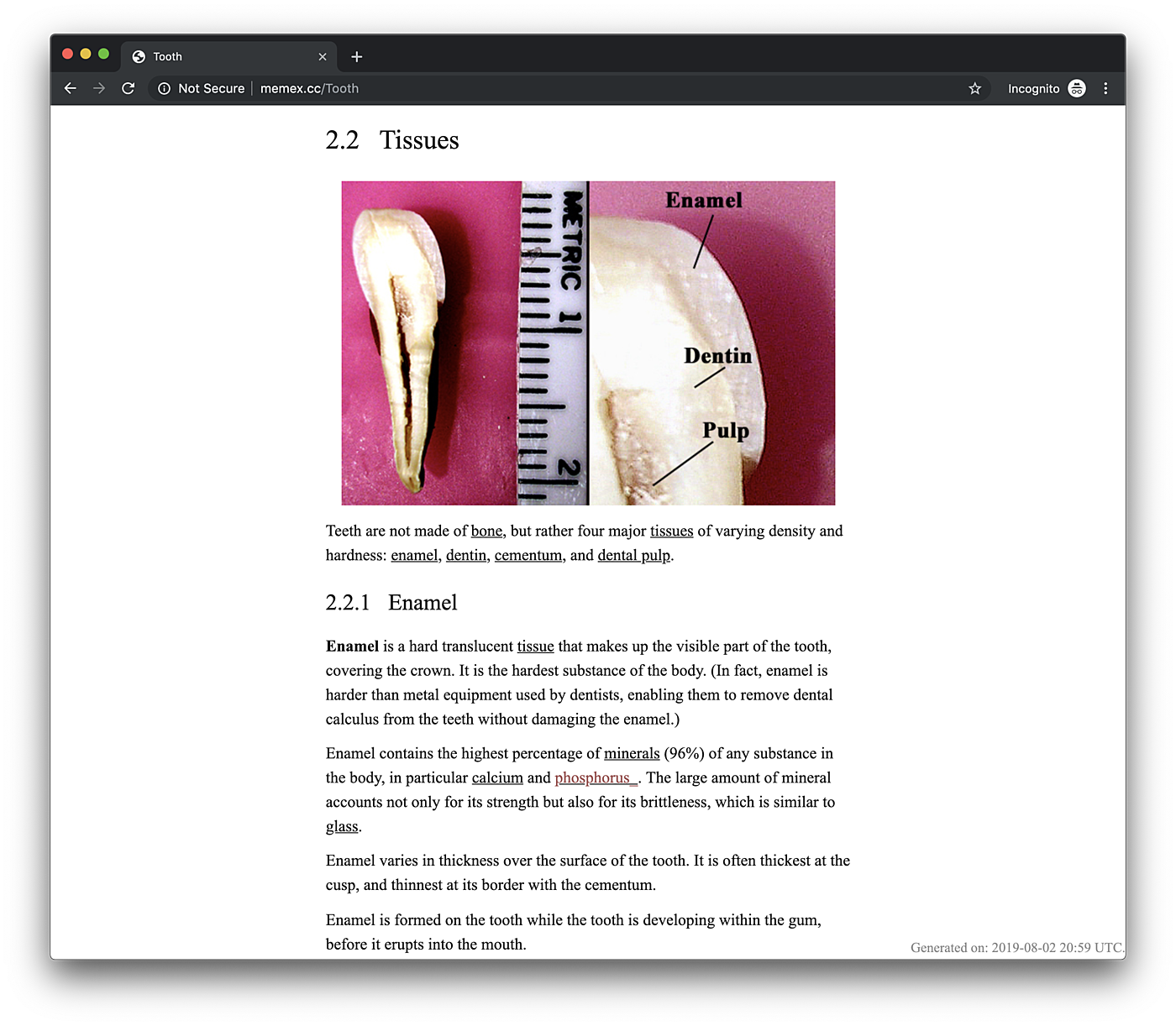
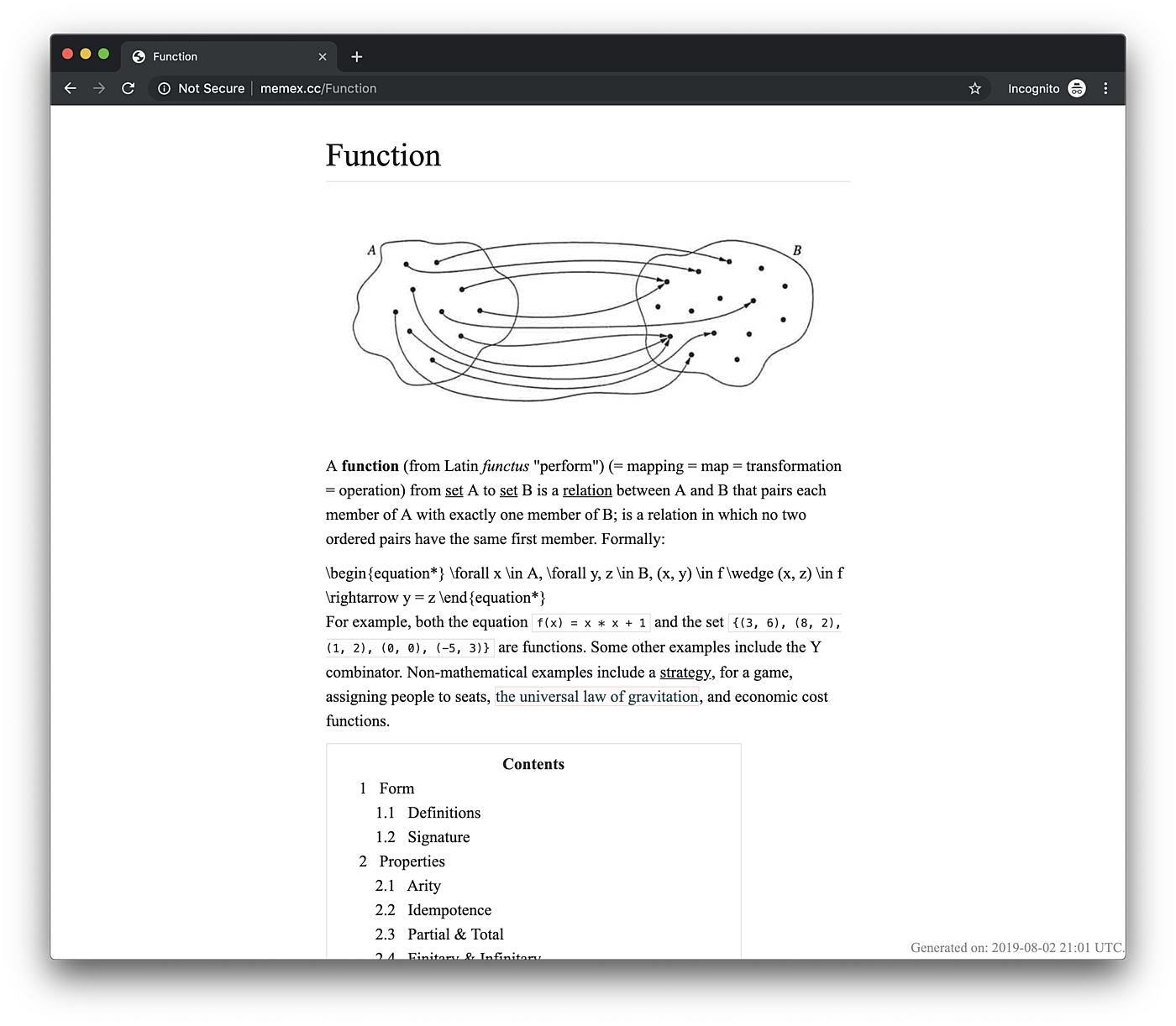
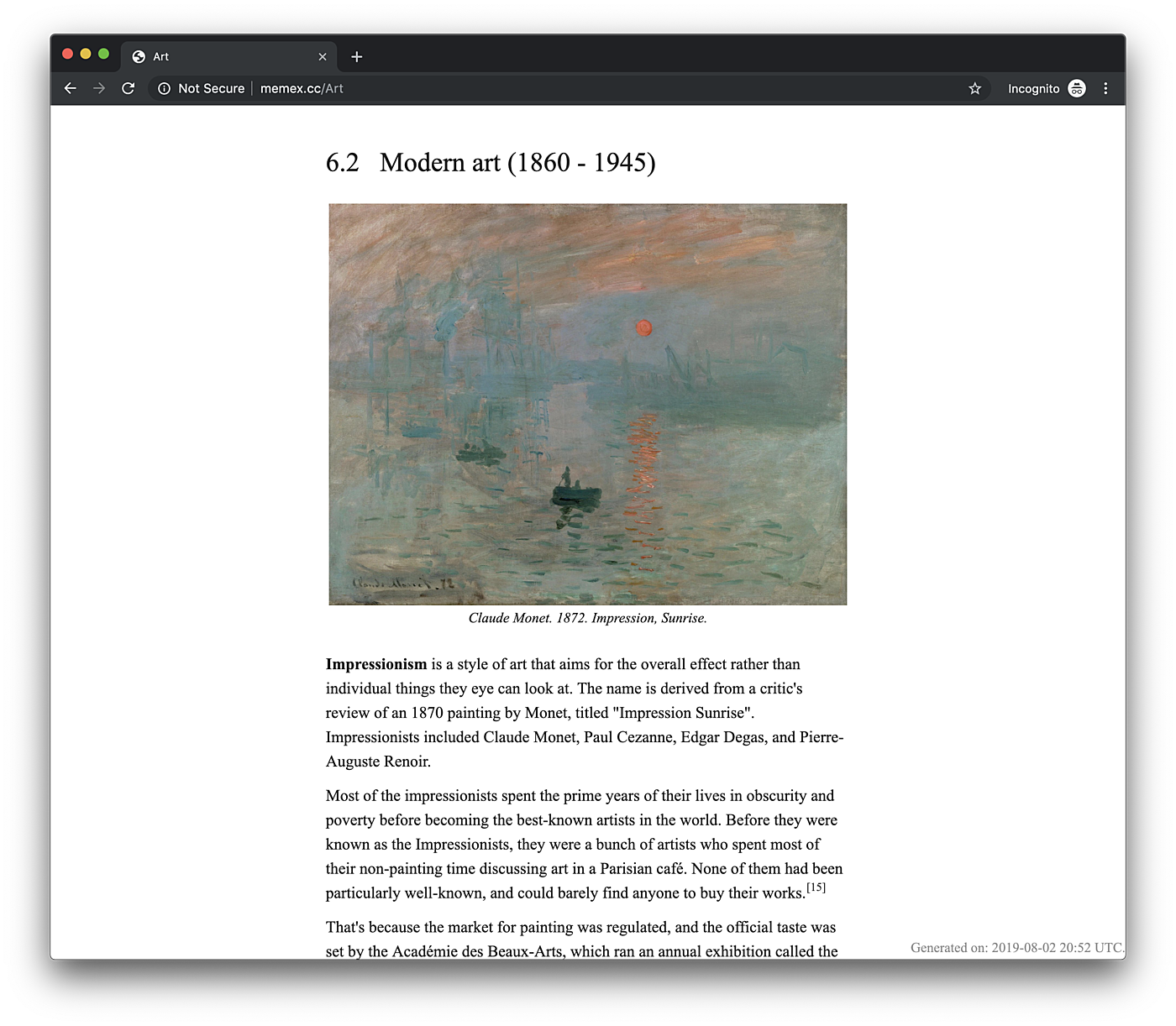









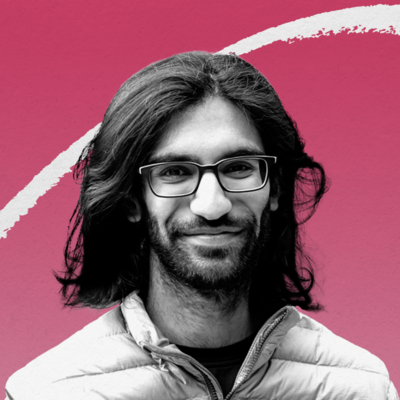

Comments
Don't have an account? Sign up!
two things:
thing 1: "Why should I believe them?"
thing 2: I'm on my way of being a Superorganizer
this is SO cool